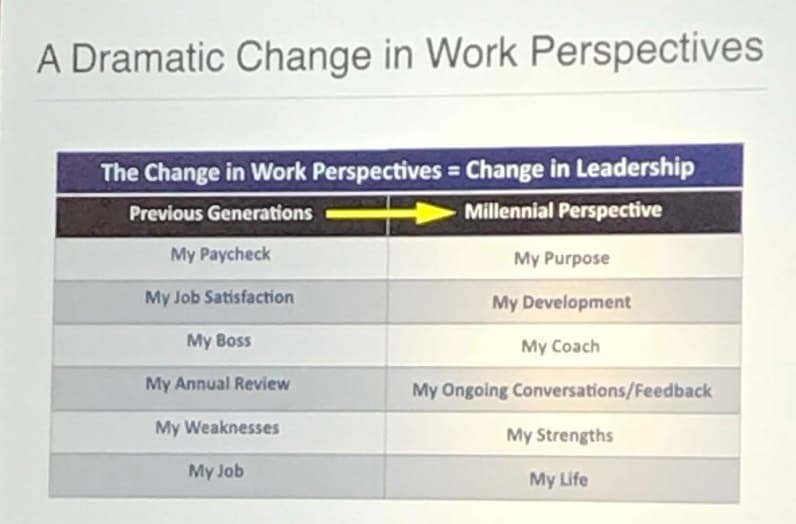It should come as no surprise that the “capacity crunch” was probably the single most talked about issue at the TIA 2018 conference. What may come as a surprise, however, is the emphasis on relationships. In session after session, even for all the tech talk, a running theme is the important of partnerships, alliances, and simply the human element: relationships.
Toward that end, founder and president of LeadershipTraQ, Mick Ukleja shared his best practices and insights on what it takes to create an environment where diverse generations not only survive, but thrive. He focused on what you can really do to impact the relationships and productivity within your organization as it relates to all generations.
First of all, “help Millennials see the big picture,” Ukleja says, “but at the same time help them with the details. Communication is key. Build a relationship. Millennials love attention. According to a Gallup Poll study, 71% are either not engaged or actively disengaged.”
Second, be positive when connecting. Millennials can be sensitive, and it’s true all around the world. In Taiwan, they call them “strawberries” because they bruise easily. Third, don’t take their informality personally. This generation tends to have less filters.
Also, put their imaginations to work. Give them room to self-express. Create the right rewards, but at the same time put it back on them. Ask them how they’re going to contribute. It’s a paradigm shift for a lot of Millennials just entering the workplace for the first time. They’ve been advised and catered too their entire lives. Now they’re being asked to perform, and often without much guidance. Also, Ukleja suggests being flexible. If you have flexible work practices you tend to get higher engagement and loyalty from Millennials. In other words, retention.
“Communication is key. Build a relationship. Millennials love attention. According to a Gallup Poll study, 71% are either not engaged or actively disengaged.”
Perhaps most importantly, this generation wants to feel like they’re growing. Thus, keep their learning alive. “Help them grow or what them go,” says Ukleja. Six in ten say they are open to new job opportunities. 21% have changed jobs within the last year. However, when they understand what achievement looks like, their engagement skyrockets.

Ukleja uses the illustration of Nike advertising. For the previous generation, it used to be: Just do it. That had great and lasting appeal, especially for Boomers and Gen Xers, but now it’s changed. Now it’s: If you work for Nike you will be changed forever. You will be changed because you will grow.
So, for leaders and managers within the competitive logistics marketplace where talent is crucial and the industry surprisingly complex, the idea is to help Millennials realize what they’re learning. It’s not that any one generation is better than and another, it’s simply that they tend to have different communications styles, and it’s good to understand where each is coming from.
Stay up-to-date with the latest commentary and insights on FreightTech and the impact to the markets by subscribing.










